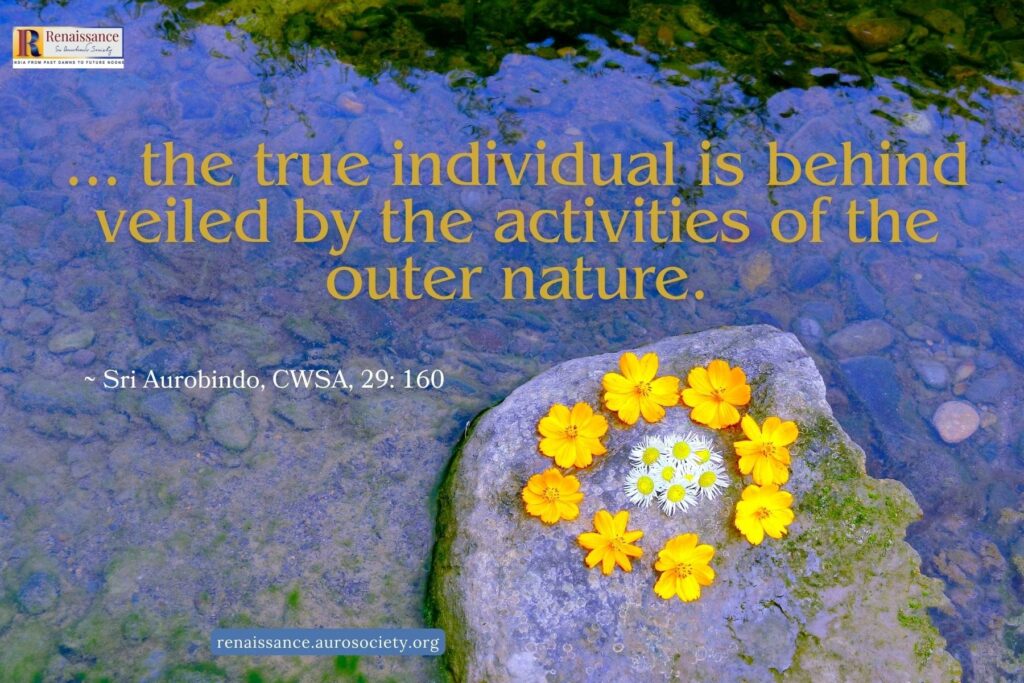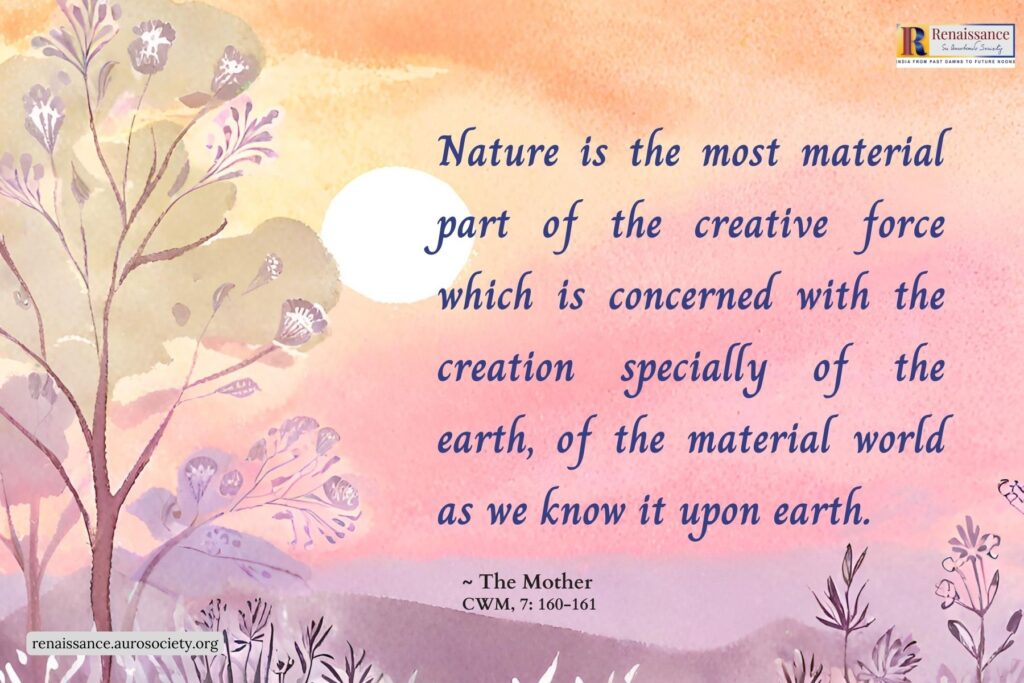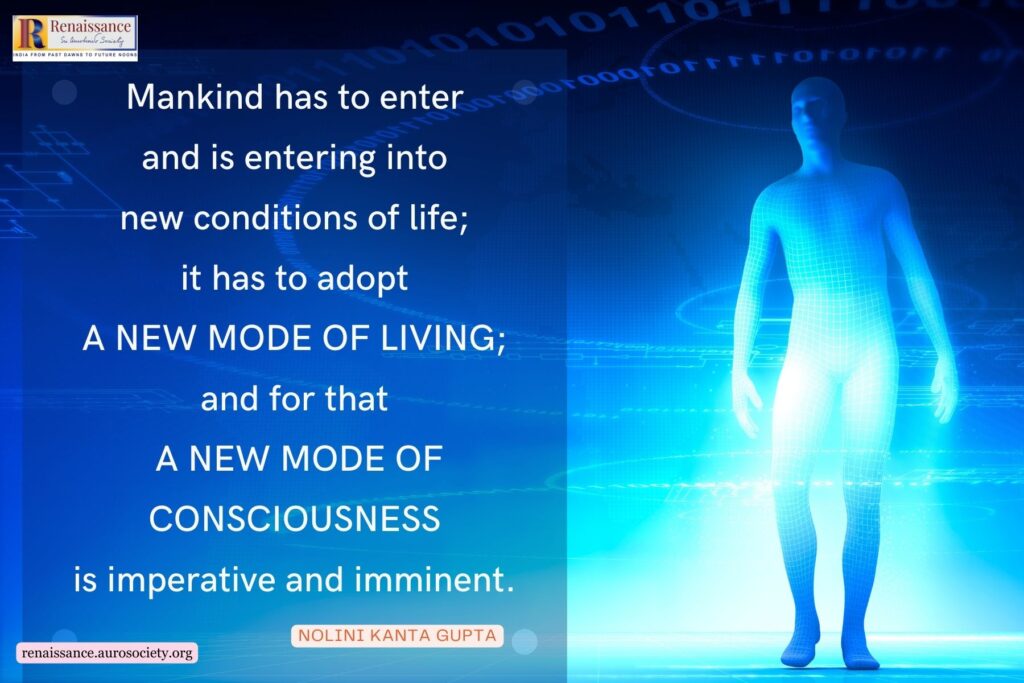Parents nearly always tell their children, “You must not lie, it is very bad to tell a lie.” But the unfortunate thing is that they lie in your presence and then you wonder why they want you to do something which they don’t do themselves.
But, apart from that, why do I insist on the fact that children should be told from a very early age that it is absolutely necessary to be sincere?… Children are very often taught how to outsmart others, how to dissimulate so as to appear good in others’ eyes. Some parents try to control children through fear, and that is the worst possible method of education, for it is an incentive to lying, deceit, hypocrisy and all the rest.
But if you repeatedly explain to children something of this kind: If you are not absolutely sincere, not only with others but also with yourself, if at any time you try to cover up your imperfections and failings, you will never make any progress, you will always remain what you are throughout all your life, without ever making any progress.
So, even if you only want to grow out of this primitive unconscious state into a progressive consciousness, the most important thing, the one absolutely important thing is sincerity. If you have done something which you ought not to have done, you must admit it to yourself; if a less-than-admirable movement has occurred in yourself, you must look it in the face and tell yourself, “It was not good,” or “It was disgusting,” or even “It was wicked.”
And don’t think that there are people to whom this rule does not apply, for you cannot live in the physical world without having a share in the physical nature, and physical nature is essentially a mixture. You will see, when you become absolutely sincere, that there is nothing in yourself that is absolutely unmixed.
But it is only when you look yourself in the face, in the light of your highest consciousness, that whatever you want to eliminate from your nature will disappear. Without this striving for absolute sincerity, the defect, the little shadow, will stay in a corner biding its time to come out.
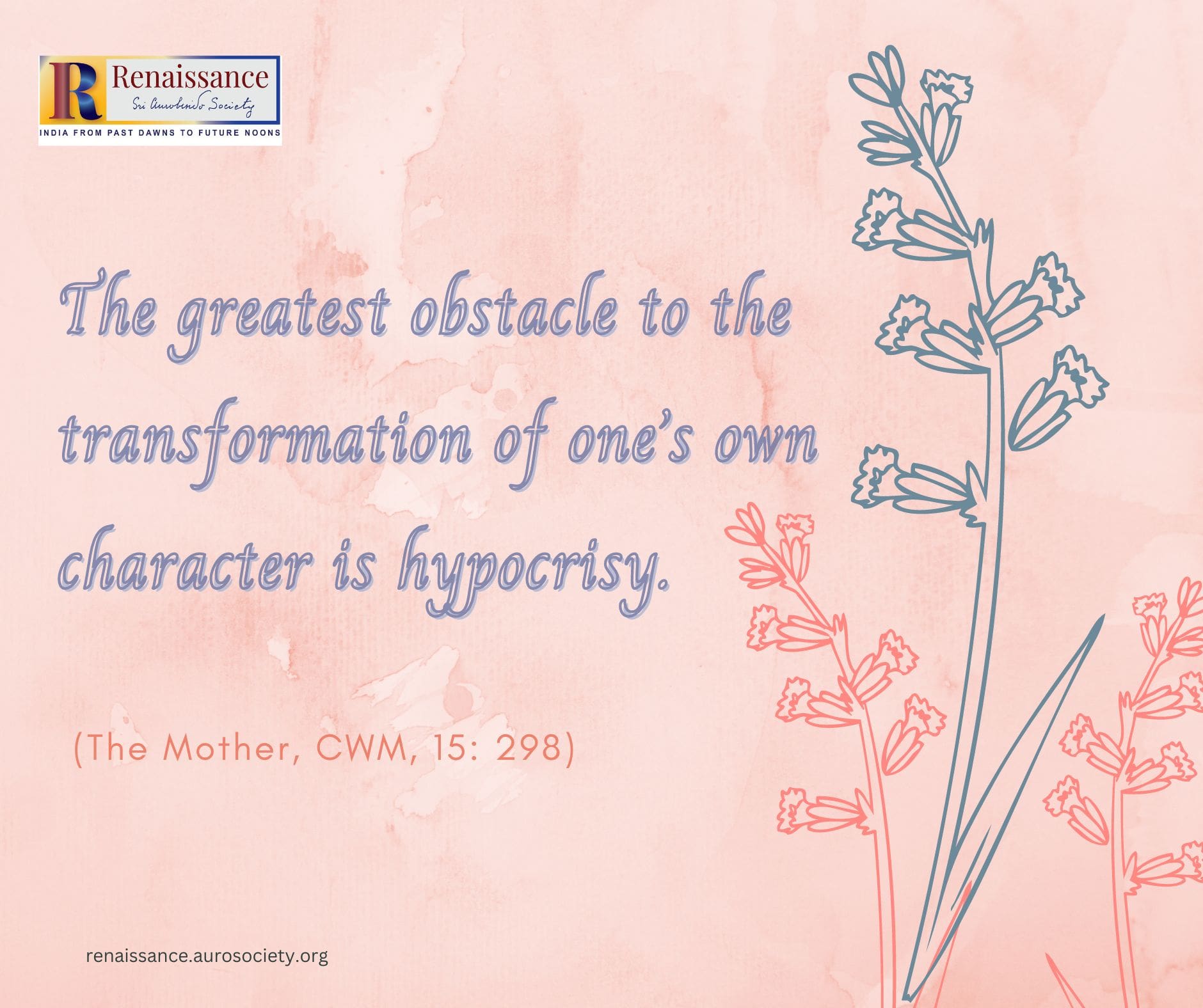
I am not speaking of the vital, which is hypocritical, I am merely speaking of the mind. If you have a small, disagreeable sensation, a slight uneasiness, see how quickly the mind gives you a favourable explanation! It lays the blame on someone else or on the circumstances, it says that what you did was right and that you are not responsible, and so on.
If you look carefully into yourself, you will see that it is like that and you will find it most amusing too! If a child starts examining himself carefully very early, observing himself honestly so as not to deceive himself or deceive others, it will become a habit and spare him much struggling later on.
Now I am addressing parents and teachers, for it is very important to teach children that it is absolutely useless to “look” as if they were good, to “look” as if they were obedient, to “look” as if they were studying well, etc. Very often, the course parents and teachers adopt with their children is to encourage them to “look as if”. It often happens that if a child spontaneously confesses his mistake, he is given a scolding. This is one of the greatest mistakes of parents.
You must have sufficient control over yourself never to scold a child, even if he has broken a very valuable and cherished object. You should simply ask him, “How did you do that?” “What happened?” For the child ought to see why it happened, so that he can be more careful next time. But that is all. In this way you will get the child to be sincere with you instead of trying to deceive you.
The greatest obstacle to the transformation of one’s own character is hypocrisy. If you always keep this in mind when dealing with a child, you can do him a lot of good. Of course, you must not sermonise or lecture him, etc. You should simply make him understand that there is a nobility in the being, a great purity, a great love of beauty, which is so powerful that even the most wicked and criminal people are forced to acknowledge a truly beautiful or heroic or selfless act.
For, in human beings, there is a presence, the most marvellous Presence on earth, and except in a few very rare cases which I need not mention here, this presence lies asleep in the heart—not the physical heart but the psychic center—of all beings. And when this Splendour is manifested with enough purity, it will awaken in all beings the echo of this Presence.
(The Mother, CWM, Vol. 15, pp. 297-299)
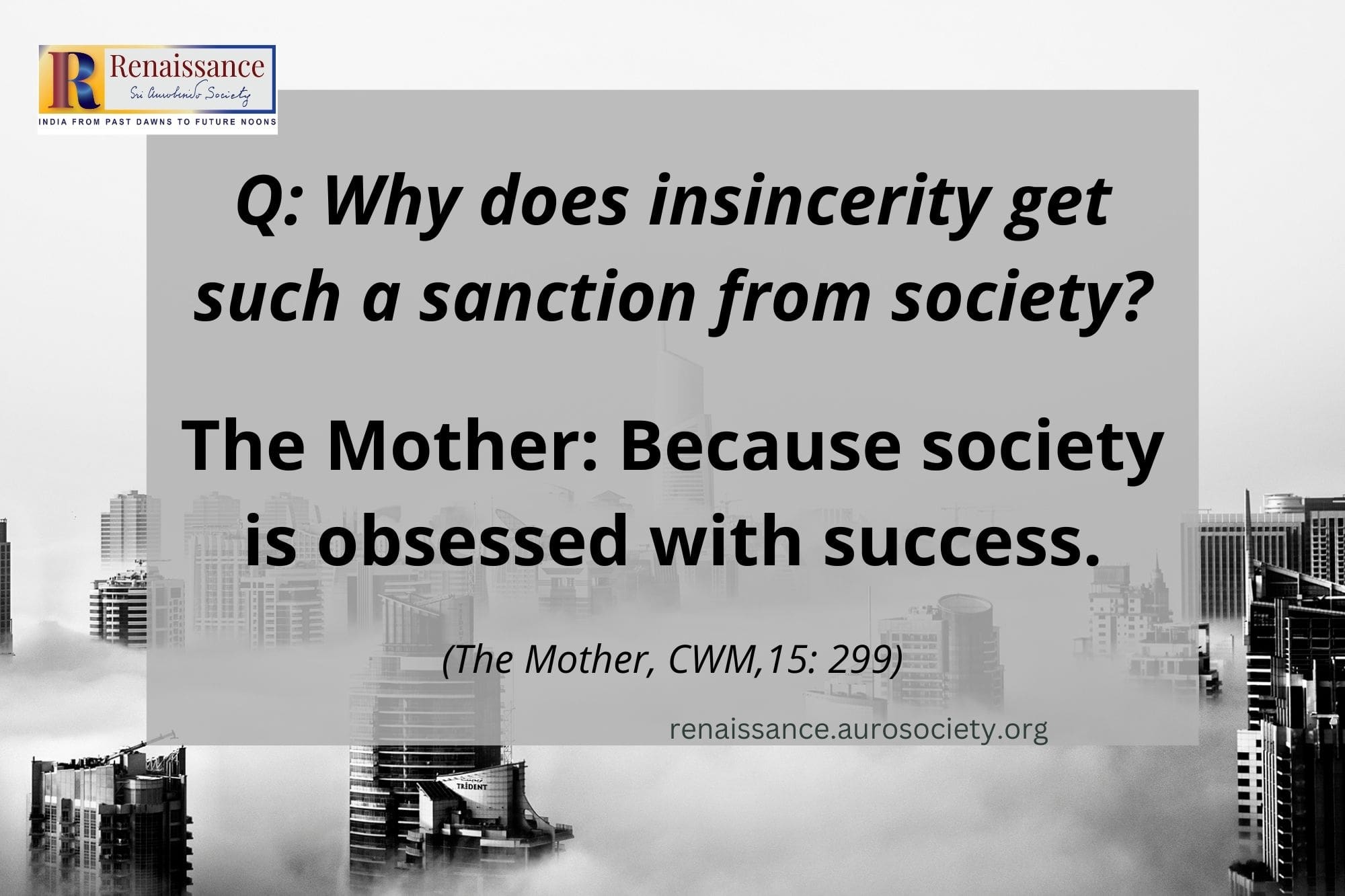
Most parents, for various reasons, give very little thought to the true education which should be imparted to children. When they have brought a child into the world, provided him with food, satisfied his various material needs and looked after his health more or less carefully, they think they have fully discharged their duty. Later on, they will send him to school and hand over to the teachers the responsibility for his education.
There are other parents who know that their children must be educated and who try to do what they can. But very few, even among those who are most serious and sincere, know that the first thing to do, in order to be able to educate a child, is to educate oneself, to become conscious and master of oneself so that one never sets a bad example to one’s child.
For it is above all through example that education becomes effective. To speak good words and to give wise advice to a child has very little effect if one does not oneself give him an example of what one teaches.
Sincerity, honesty, straightforwardness, courage, disinterestedness, unselfishness, patience, endurance, perseverance, peace, calm, self-control are all things that are taught infinitely better by example than by beautiful speeches. Parents, have a high ideal and always act in accordance with it and you will see that little by little your child will reflect this ideal in himself and spontaneously manifest the qualities you would like to see expressed in his nature.
Quite naturally a child has respect and admiration for his parents; unless they are quite unworthy, they will always appear to their child as demigods whom he will try to imitate as best he can.
With very few exceptions, parents are not aware of the disastrous influence that their own defects, impulses, weaknesses and lack of self-control have on their children. If you wish to be respected by a child, have respect for yourself and be worthy of respect at every moment.
Never be authoritarian, despotic, impatient or ill-tempered. When your child asks you a question, do not give him a stupid or silly answer under the pretext that he cannot understand you.
You can always make yourself understood if you take enough trouble; and in spite of the popular saying that it is not always good to tell the truth, I affirm that it is always good to tell the truth, but that the art consists in telling it in such a way as to make it accessible to the mind of the hearer.
In early life, until he is twelve or fourteen, the child’s mind is hardly open to abstract notions and general ideas. And yet you can train it to understand these things by using concrete images, symbols or parables. Up to quite an advanced age and for some who mentally always remain children, a narrative, a story, a tale well told teach much more than any number of theoretical explanations.
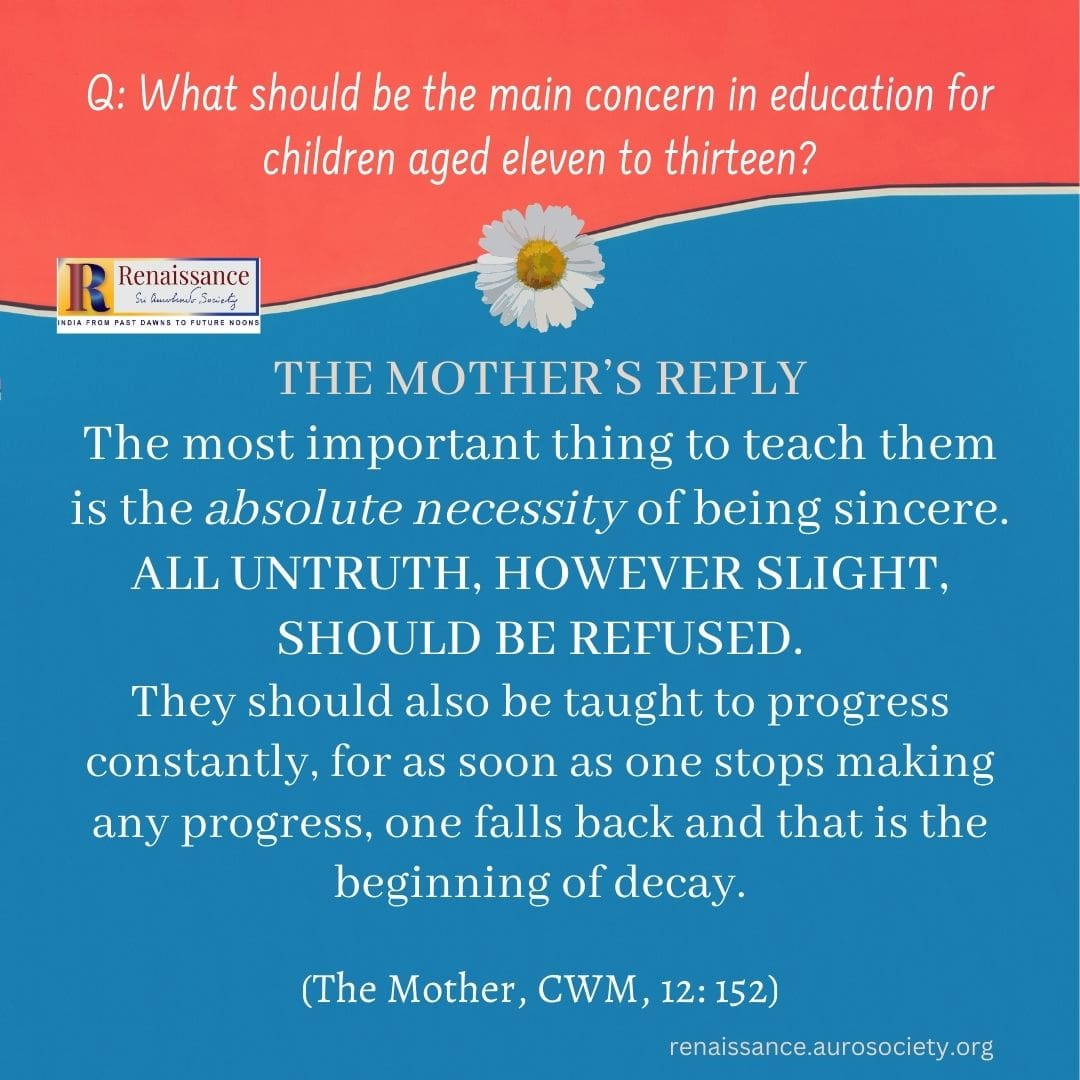

~ Graphic design: Beloo Mehra

